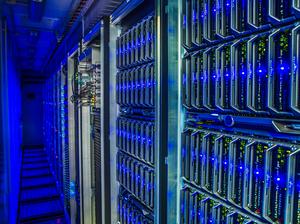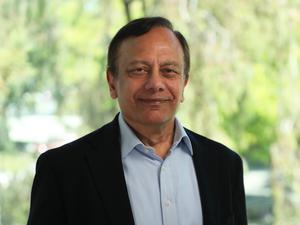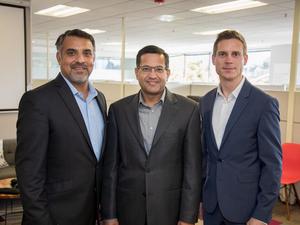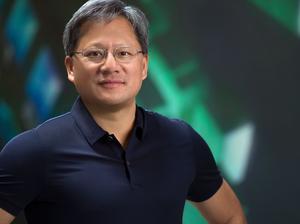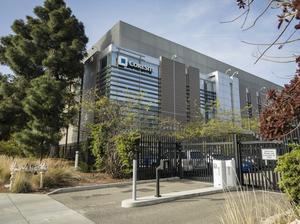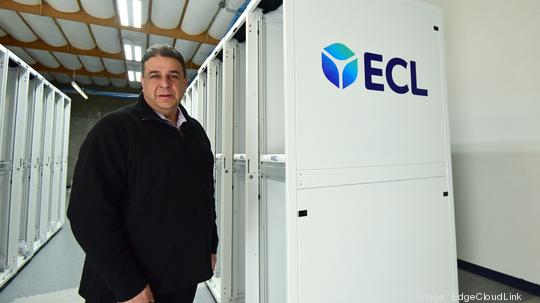
A Mountain View startup thinks it's developed a way to make data centers greener, more resilient and easier to build.
EdgeCloudLink Inc., which emerged from stealth Tuesday, plans to construct off-grid data centers. Instead of being powered by electricity from the local power company, they'll run on energy generated by on-site green hydrogen fuel cells. To cool the servers, they'll use the water the fuel cells create as a waste product. And to house the computers, they'll use modular, 3D-printed panels and racks.
By using 3D printed racks and eliminating the need for outside water and electricity, ECL will be able to cut the time it takes to plan and construct a data center from 18 to 24 months to just six to nine, co-founder and CEO Yuval Bachar told the Business Journal. It could build its facilities even faster if it didn't have to wait four to five months to get parts through its supply chain, he said.
"The only reason it takes us six to nine months is because some of our components need to be sourced outside," Bachar said.
Data centers are effectively where the cloud exists; they're where cloud-based software is run, data is stored and processing takes place. As more of computing has shifted to the cloud, they've become increasingly important.
Data center operators often like to locate them near significant customers, but they also typically have to build them near major power facilities to meet their often-intensive electricity requirements. For backup power in case of outages, many rely on pollution-generating diesel generators.
By designing data centers that rely on their own power, ECL can have more flexibility about where it locates them. By powering them with fuel cells that run hydrogen that's generated in environmentally sustainable ways and using batteries for backup power, its data centers can be greener than traditional ones.
ECL isn't the first company to use fuel cells to power a data center. Microsoft Corp., Apple Inc. and other companies have tested or used fuel cells to provide supplemental or backup power for their data facilities. Data center giant Equinix Inc. operates some of its facilities uses fuel cells from Bloom Energy Energy Corp. that don't use green hydrogen as their fuel and use grid-provided electricity for backup. This is cleaner than using grid-provided electricity but the still emits some carbon dioxide as a by-product.
By contrast, ECL's data centers will not only use green hydrogen fuel cells as their primary source of power, they won't rely on the power grid at all, even for backup.
ECL will build a demonstration facility
The company plans to test out its system in its hometown. It plans to convert a former office and warehouse space into a new 1-megawatt demonstration data center that it expects will be ready by midyear. The facility will have enough power and space for about 5,000 servers.
In the future, it plans to build out facilities for its customers using its 3D printed racks. It plans to build facilities that it could hand off to a single customer as well as ones that will be shared among multiple clients.
ECL is targeting as customers mid-sized to large companies that operate numerous data centers. It also sees an opportunity to team up with some of the big data center operators to create new facilities that would be powered by the startup's energy system, Bachar said.
Potential customers will be able to test out how their workloads would perform in an ECL data center at the company's demonstration site, Bachar said.
"If they feel comfortable we will go into production at their own sites," he said.
ECL has already signed up some clients, but Bachar said it wouldn't name them until later this year.
The startup has won over some investors, having raised $7 million in seed funding in a round led by Molex Ventures and Hyperwise Venture. That's enough not to only build its demonstration facility, but to tide it over until it starts getting revenue from its first customers, Bachar said.
It should have no problem signing up clients, Lily Yeung, vice president at Molex Ventures, said in a press release Tuesday.
"It's exciting to see ECL investing to bring tremendously relevant and novel experience into this high growth space," Yeung said in the release.
